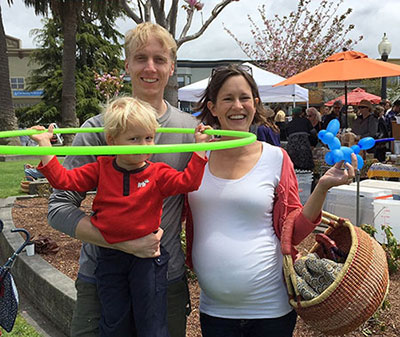
Elizabeth Turman-Bryant received a 2013 Pastoral Study Project Grant for Radical Hospitality for the Rest of Us: Congregational Models for Welcoming the Stranger.
LI: What inspired your project?
ET-M: I wanted to understand how hospitality was practiced in ancient Israel and the early church, and how that differed from contemporary notions of hospitality. I visited and interviewed church leaders and members of five North American congregations practicing radical hospitality toward prisoners, orphans, disabled persons, and low-income neighbors.
My goal was to reintroduce hospitality as a transformative practice that all of us can experience, regardless of our background or stage of life.
LI: Where did your passion for this practice come from?
ET-M: It flows directly from my own experience as a stranger and outsider. As a missionary kid, I grew up in five different countries and often found myself navigating new cultures and environments. I remember vividly the people who took the time to orient me and welcome me to their table and into their lives. These simple but powerful expressions of love left indelible impressions that I have carried with me into adulthood.
LI: In what ways was this project rooted in your ministry?
ET-M: Tierra Nueva is committed to accompanying migrant farmer workers and inmates from our local jail. As a small staff we often find ourselves over-extended. We’ve longed for more people to work alongside us in supporting those who were trying to rebuild healthy lives. Local church people were intrigued by our ministry yet felt intimidated and unequipped for getting involved. I began to wonder what the barriers were for local churches engaging in local missions, and what it could look like for local churches to catch a vision of walking alongside the most vulnerable in their own neighborhoods.
LI: How did you use your grant?
ET-M: I identified five congregations that were embodying radical welcome to different types of strangers from their community. My website shares the story of these churches: how the congregations cultivated this culture of hospitality and practices that were common to all of the congregations that I visited. My hope is that Radical Hospitality for the REST of Us will become a resource to inspire churches who want to grow into reaching out and cultivating a culture of welcome but need inspiration and tools to make it happen.
LI: The whiteboard video on your website is fascinating. How did they come about?
ET-M: With the help of two talented friends, I created an animation video that highlighted the results of my project in a way that would be easily accessible to both young and old. I’m encouraged by the enthusiastic response to this medium and how people are using it as a tool for inspiration.
LI: Any other thoughts?
ET-M: I am deeply grateful to the Louisville Institute for their Pastoral Study Project program — this project would not have materialized without their support. The Institute was helpful not only through the financial support that I received during my sabbatical, but also through the accountability of deadlines and the feedback provided by fellow recipients during the annual gathering.